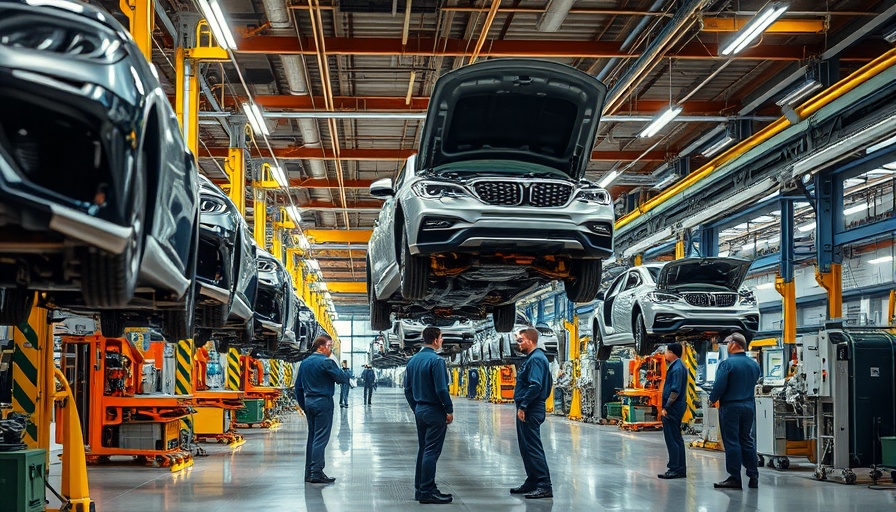
The Rising Costs of Auto Repairs: A Looming Hurdle
As auto parts tariffs took effect on May 3, 2025, an unsettled landscape for both customers and dealers is beginning to emerge. Increased tariffs can lead to higher pricing for parts, subsequently impacting repair costs for consumers. The reality is these surging costs might soon push auto repairs into the spotlight as the next hurdle in this evolving market.
Understanding the Impact of Tariffs on Auto Repairs
Tariffs can make auto parts more expensive, which affects repair shops and ultimately the costs that customers will bear. With the average repair bill already rising significantly in recent years, this new import taxation could act like a weight on consumers, who may feel the pinch when their cars require servicing.
Why This Matters to Dealership Principals and GMs
For dealership principals and general managers, understanding these dynamics is crucial. Rising repair costs may dissuade potential buyers, thereby affecting sales. Customers are more likely to feel hesitant about purchasing a vehicle if they foresee escalating expenses tied to future repairs.
Aligning Automotive Services with Customer Expectations
As a dealer, the responsibility extends beyond merely selling cars; it also encompasses providing value long after the sale. That involves positioning service departments competitively in light of these new pricing challenges. Offering affordable and transparent pricing can lead to better customer retention and a loyal client base, even amidst the uncertainty of tariffs.
Potential Strategies to Mitigate Costs
Dealers can explore partnerships with local automotive training centers to create a pool of skilled technicians who can provide expert service at competitive rates. Investing in automotive training not only enhances the technical skills available in-house but can also improve customer satisfaction in the long run as well-trained staff deliver quality service.
Actionable Insights for Automotive Business Leaders
With the changing landscape, it's important for dealership leaders to remain proactive:
- Communicate openly with customers about potential impacts of tariffs on parts pricing and repairs.
- Encourage feedback from clients to adapt services to meet their needs better.
- Implement cost-effective solutions within your service departments to ensure prices remain competitive.
By staying ahead of these developments, dealership principals can not only navigate but thrive amidst the increased complexity in the automotive industry.
Your Next Steps
With escalating challenges due to tariffs and repair costs, the time is now for automotive professionals to hone their strategies, ensuring that service remains a core focus. Embrace the opportunity to educate your team on current trends in auto repair, and consider incorporating automotive training that could enhance your dealership's effectiveness. Make informed decisions that position your business for success in these tumultuous times.
 Add Row
Add Row  Add
Add 




Write A Comment